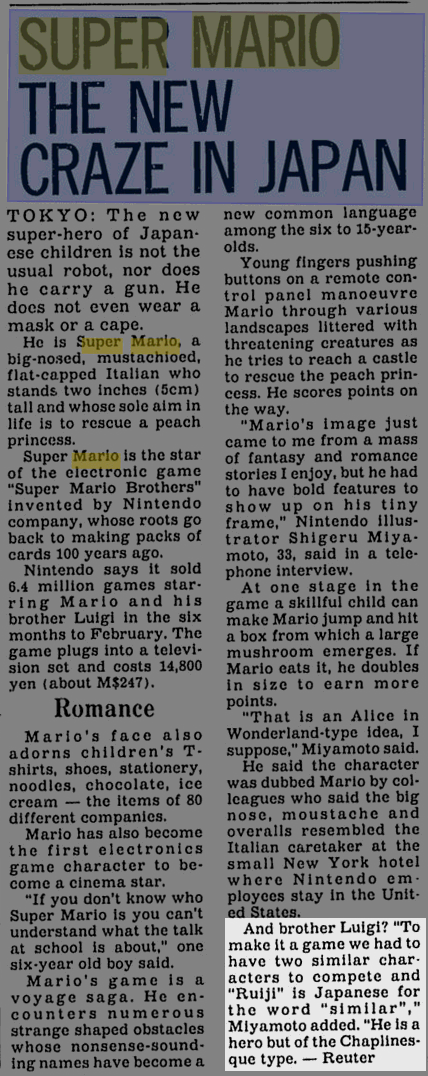Franchise: Mario
Mario Sports Mix
Dance Dance Revolution Mario Mix
Mario & Luigi: Superstar Saga + Bowser's Minions
Mario vs. Donkey Kong
Mario & Luigi: Brothership
Balloon Trip
Dr. Mario
Mario Party Advance
Mario's Early Years! Fun with Letters
Mario & Luigi: Partners in Time
Super Mario RPG 2
Mario Bros.
Mario Artist: Communication Kit
Mario Tennis: Ultra Smash
BS Super Mario Collection
Mario Is Missing!
Super Mario Galaxy 2
Mario Pinball Land
Mario Is Missing!
Mario's Tennis
Captain Rainbow
Super Mario Land 2: 6 Golden Coins
Mario Superstar Baseball
Mario Kart 8 Deluxe
Mario Artist: Paint Studio
Super Mario Party
Paper Mario: The Thousand-Year Door
Fortune Street
Mini Mario & Friends: Amiibo Challenge
Mario Bros.
Mario Kart 8
Mario + Rabbids Kingdom Battle
Mario Kart DS
Mario Party: Fushigi no Challenge World
Super Mario Advance 4: Super Mario Bros. 3
Super Mario Run
Mario Party 2
Super Mario Bros. Deluxe
Yoshi's Island: Super Mario Advance 3
Super Mario World
Super Mario FX
Yoshi
Yoshi's Island DS
Mario Kart: Super Circuit
Mario Tennis
Donkey Kong Circus
SSX on Tour
Yoshi's New Island
Poochy & Yoshi's Woolly World
Donkey Kong: Original Edition
Viewing Single Trivia
▲
1
▼
Luigi's name comes from a pun on the Japanese word ルイージ¸ or ruiji meaning "similar". Since all of his sprites in earlier games were just recolors of his brother's sprites, and his name was Italian like Mario's was, it seemed to fit him.
Comments (2)
Sorry to disagree, but similar in Japanese actually translates to something else: https://translate.google.com/?sl=en&tl=ja&text=Similar&op=translate
You must be logged in to post comments.

https://en.wiktionary.org/wiki/似る#Japanese
https://en.wiktionary.org/wiki/類似#Japanese
Miyamoto's next sentence in this article describes Luigi as "a hero but of the Chaplinesque type." The fact that he's categorized as a "Chaplinesque type" is an important distinction, because Chaplinesque on its own is used as an adjective for having or trying to emulate the traits of Charlie Chaplin's film characters, but this style being denoted by Chaplin's last name means that his characters' qualities are unique enough that it's inherent that not everyone naturally acts like them. Luigi's timid and occasionally heroic qualities aren't an appearance he's putting on to resemble those characters, he was designed to genuinely behave like them. So in this case "ruiji" is being used correctly to refer to the fact of being similar as Luigi's name originates from a pun meaning that he is a similar type of hero.